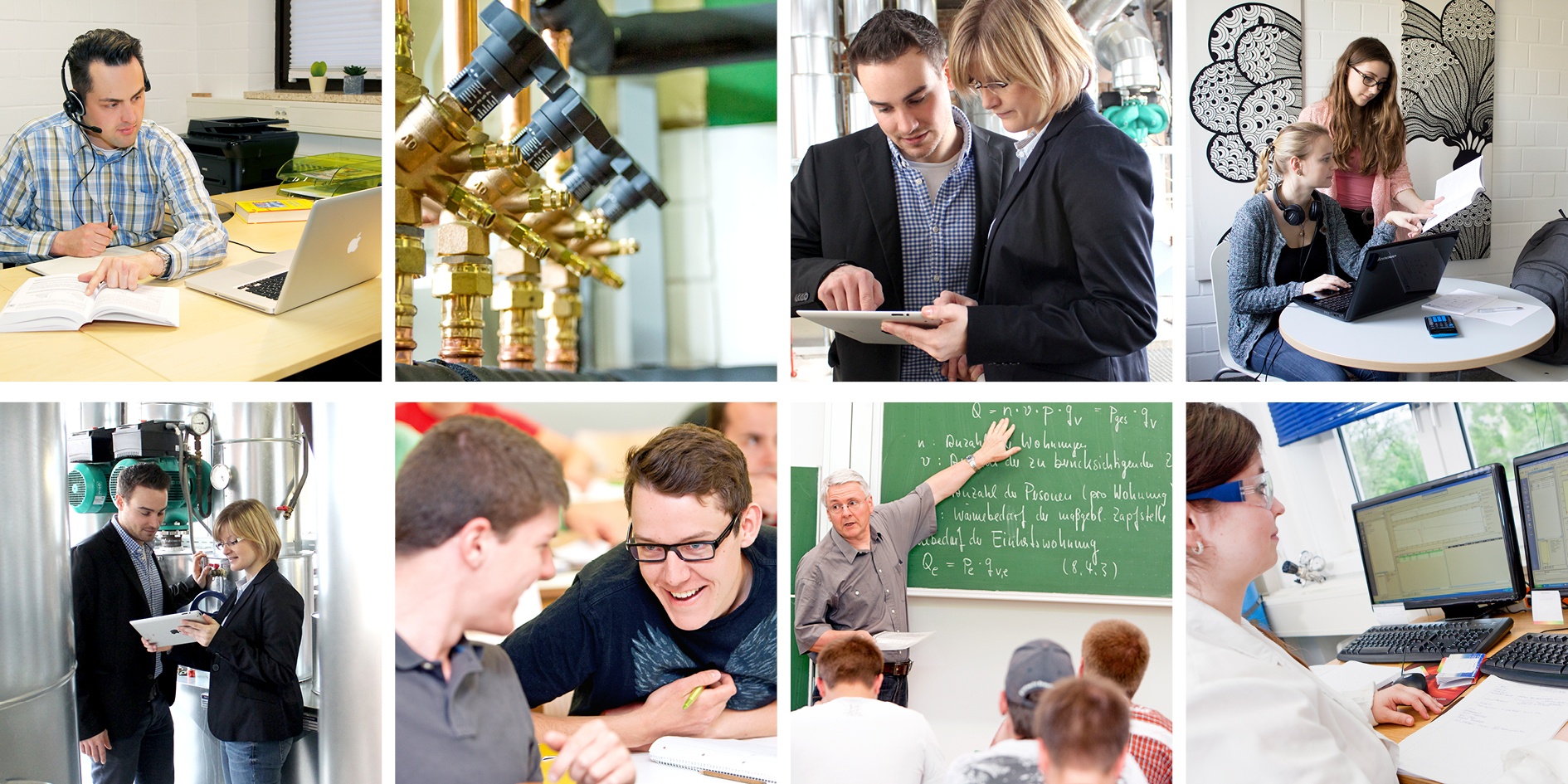
This course of study is aimed at students who are interested in the topic of "energy" or the topic "environment" not only technically but also socially and want to deal with interdisciplinary tasks in their future careers.
The liberalization of the energy markets and the increasing legalization of the energy industry are causing profound changes in companies. As a result of political and economic goals (keyword "energy transition"), the demand for suitably trained specialist personnel has increased enormously. These special skilled workers must be able to act competently at the interface of technical and business tasks and dovetail both areas properly. The Bachelor of Engineering degree (B.Eng.) Gives you these skills to help you find economically viable solutions to these technical challenges.
The program is divided into presence and online parts. In doing so, 40% of the studies - specifically the business administration and the interdisciplinary contents - are offered as online courses. The lecturers and students meet in scheduled web conferences - and not in the lecture halls of the university. The online courses require a PC or laptop as well as Internet access. A headset is recommended.
The significant advantage: The online components of the degree program provide our students with considerable flexibility in terms of time and space when designing their studies. This flexibility makes it easier to study alongside other
Duration of study
7 semesters of regular study time
210 ECTS points
If the studies are started in the summer semester, the duration can be extended by one semester.
Graduation
Bachelor of Engineering (B.Eng.)
Type of study
course
Full-time study
Study form
Hybrid study with presence and online shares.
Language of instruction
Engineering and Management, Focus on energy: German
Engineering and Management, Focus on environment: German, optional partly English
Beginning
In the winter semester.
From 2018 also for the summer semester.
Admission
Admission free
Accreditation
ASIIN accredited degree program
The course contents are divided into:
30% business content
Marketing, General Business Administration, Accounting, Human Resources, Business Law, Economics, Logistics, Project Management, Controlling.
30% Mathematical and scientific fundamentals for technical applications as well as interdisciplinary subjects
Physics, Chemistry, Linear Algebra, Analysis, Thermodynamics I, Statistics, Fluid Mechanics, IT, Quality Management, Energy Economics, Energy Law, Systems Simulation, etc.
30% Specific content of the "Energy" or "Environment" priority to be chosen
Focus on energy: for the creation of economically and ecologically sound energy concepts, such as the ability to assess and optimize the use of state support systems for the rational use of energy and the use of renewable energy sources. Therefore, subjects such as Electrical Engineering, Thermodynamics II, Heat Supply, Ventilation and Air Conditioning, Gas Technology, Energy and Refrigeration Technology, Control Engineering, Networks, Renewable Energy Technology, Integral Concepts belong to the subject area.
Focus on the environment: to restructure operations within production and disposal under the requirements of the circular economy and with regard to the design of logistics processes or also to certification and auditing of companies according to European environmental and quality standards. Subjects in the subject area include: inorganic, organic and biological chemistry, water chemistry, cell biology / molecular and microbiology, soil and water protection, instrumental analysis, waste treatment, bioreactors, wastewater treatment, air pollution control, plant construction, environmental management, environmental law.
10 % project work and bachelor thesis.
With a degree you have excellent job prospects in exciting fields of work at the interface between technology and business. Our industrial partners confirm the high demand for such trained specialists and executives. The occupational fields and work areas in enterprises, medium-sized enterprises and in the civil service are broad:
Focus on energy:
Focus on the environment:
You may have the interesting opportunity to acquire a "double degree". Further information can be found in our section "International".
After completing your bachelor's degree, you can study a master's program in both technical and business administration.
At the Faculty of Supply Engineering, you can complete the master's program in Energy Systems Engineering and choose between these specializations:
Degree: Master of Engineering (M.Eng.)